- Home
- Steve Vernon
Sinking Deeper Page 4
Sinking Deeper Read online
Page 4
That’s when I told them about my plan. I pulled out my laptop and showed them the email I’d gotten that morning.
To: [email protected]
From: Dreamchasers
Hi there, anonymous.
I got your email and your story sounds fascinating. As Canada’s premier cryptid hunting society I feel I might have to get involved and investigate this phenomenun. Can you give me any more details than you have offered? Have there been any photographs taken? Is there a history of cryptid sightings in your town? Has anyone else besides you seen this creature? Can you give me your name?
“A sea serpent?” Warren said.
“That email is a start, I guess,” Granddad Angus said. “Even though he did misspell the words ‘premiere’ and ‘phenomenon.’”
“And I’m not that crazy about how he uses the words ‘society’ and ‘I’ in the same sentence,” Warren pointed out. “It sounds to me as if we might be dealing with a society of one person.”
“And where are we going to get photographs?” Dulsie asked.
“All we need to do is spread a few more rumours,” I said. “It’s like spreading a cold. Sneeze on enough people and you create an epidemic. I bet there’ll be television crews and newspaper articles and we’ll have tourists coming out of our ears.”
“Is that what you figure?” Warren asked.
“The boy is on to something,” Granddad Angus said. “Just look at all these people come out to stare at a caber-impaled dory. People always come when there’s something to look at.”
“So?” Warren asked.
“What about the Shag Harbour UFO crash back in 1967? That was in newspapers and books, too. Tourists still go there, hoping for a glimpse of a flying saucer.”
“Shediac has a giant lobster,” Dulsie added. “People go see that.”
“And Sydney has a giant fiddle,” I put in.
“Nackawic in New Brunswick has a giant axe,” Granddad Angus went on, “and Stewiacke has a giant mammoth.”
“A mammoth what?” Warren asked.
“A big elephant that needs a haircut,” Granddad Angus explained. “All Deeper Harbour needs is an attraction, just like that one.”
He pointed out at Warren’s dory.
“We don’t need to build anything at first,” he said. “That’s the beauty of it. We can start with a legend. It’s like all those old ghost stories people keep telling around campfires—if enough people tell a story long enough, it grows its own form of true.”
“Like the Boy Scout ghosts of Muddy Lake,” Dulsie said.
“That’s right,” Granddad Angus said.
“Or like the Loch Ness Monster,” she said.
“That’s right again, girl, like Loch Ness. If we spread the word that there’s a sea monster out there,” Granddad Angus said, pointing out the harbour, “then the tourists will come.”
“Nobody will believe it,” Warren said.
“Like Roland said, do you want to bet?” Granddad Angus asked. “Why don’t you try to out-skip me? If you lose you have to agree to help me and the kids spread a sea monster story.”
“I’m not betting with you,” Warren said.
“Why not?” I asked. “Are you chicken?”
“He is,” Dulsie said. “My dad is a big chicken.”
Granddad Angus poked his fists into his armpits and began scratching the toes of his sneakers in the dirt, bucking his neck back and forth and looking as if someone had wrapped a kilt around the biggest, ugliest Rhode Island Red rooster in the world.
“Buck, buck, buckaw,” Granddad Angus clucked. “Buck, buck, buckaw.”
There is something both irritating and irresistible about the sight of a thousand-year-old man in a kilt making chicken sounds while doing a funky chicken dance. It gets under your skin and worms away at your common sense like a gigantic double-dare.
“That’s a lot to ride on the fling of a stone,” Warren argued.
I started clucking as well. Dulsie joined in too.
“All right,” Warren said. “You’ve got yourself a bet.”
He stooped for another stone and winged it.
Skip—skip—skip—skip—skip—skip—skip—skip—skip—skip—skip—skip—skip…sploosh.
“Ha!” Warren laughed. “Thirteen skips. I guess you lose.”
Wow.
I had no idea that Warren Boudreau was a world-champion, gold-medal, Olympic-class stone skipper. Granddad Angus didn’t seem to be worried, though. He calmly rooted a stone from out of his magic fishing vest of many pockets.
“Do you see this stone?” he asked, holding up what looked to be a perfectly ordinary, flat, triangular shard of slightly blackened beach stone. “This used to be a Mi’kmaq arrowhead. Long before we started writing history down, an ancient hunter tracked a rare white deer down to the shoreline and sent this arrowhead straight through the deer’s beating heart.”
Warren, Dulsie, and I stood there listening and thinking. It was a gift that Granddad Angus had. When he started spinning those words it was like the world’s largest 3-D television went on somewhere in the back of your brain.
“The hunter sang a song,” Granddad Angus went on, “a song so beautiful that the wind stopped blowing and the tide stopped turning and even the seagulls came down to listen. And then he threw the arrowhead stone into the water. Several centuries later, the stone washed ashore and I picked it up and put it in my pocket.”
“That’s just a story,” Warren said.
“Doesn’t mean it isn’t true,” Granddad Angus argued. “If you tell a story long enough and hard enough it becomes true.”
“So why didn’t he keep the arrowhead?” Warren asked.
“Because the arrowhead had done its job already,” Dulsie said.
“Right you are,” Granddad Angus said. “The arrowhead had made its flight and done its magic and the Mi’kmaq chief knew that he had to return the stone to the sea.”
“There’s no such thing as magic,” Warren said.
“Says you,” Granddad Angus retorted. “This is the stone of fly-far.”
“Says who?” Warren asked.
“Says me,” Granddad Angus replied. “And who can say any differently?”
When someone makes a claim as bold as that there is only one thing you can do.
“Prove it,” Warren, Dulsie, and I said tri-multaneously.
Granddad Angus just grinned at the three of us.
“Magic grows wild on the beach, here in Nova Scotia,” he told us. “Never doubt it for a heartbeat.”
And then Granddad Angus let the stone fly free.
Skip—skip—skip—skip—skip—skip—skip—skip—skip—skip—skip—skip—skip—skip—skip—skip—skip—skip—skip—skip—skip—skip—skip—skip—skip—skip—skip—skip…
The stone of fly-far skimmed and skipped off into the distance, further than I could ever hope to see. Part of me wondered if maybe the stone had splashed into the water and I’d blinked and missed it. Another part wondered if the wind hadn’t somehow taken the stone and blown it farther than it should have, but the deepest, quietest, stillest part of me wondered if somehow Granddad Angus hadn’t thrown that stone far beyond the farthest lip of the horizon and deep into the heart of forever.
“So where are we going to come up with a sea monster?” Warren asked.
“Right out there,” Granddad Angus said, pointing at Warren’s dory. “All we need is a good strong rope and enough backbone to drag that dory up to the shed.”
Chapter 8
Heaving the Dory
“HEAVE!”
The four of us—Granddad Angus, Warren, Dulsie, and me—leaned, hauled, muckled, bore down, and came a daisy onto about a million and a half pounds of dory and clothesline-pole caber after Warren had finished fishing the m
ooring rope up out of the water.
“Wouldn’t it be easier to just rent a tow truck?” I asked.
“Keep pulling,” Granddad Angus ordered.
“We could have hired a helicopter,” I suggested, “or taken a fishing boat out and towed the dory in.”
“Where would be the fun in that?” Granddad Angus asked.
“Heave!” Warren shouted again.
I heaved. The rope quivered, shook, and burned in the palms of my hands like a two-hundred-foot-long electric eel. I wondered if there would be time to go home and get five or six pairs of work gloves from the basement and put them on, slowly, one at a time, while I watched everybody but me heave up that one-and-a-half-million-pound dory.
“Heave!”
I squeezed my eyes closed.
I was certain I would have a heart attack any minute now and puke my guts out and my head would explode. Then, when I opened my eyes the rope had grown two more pairs of hands as a couple of onlookers grabbed hold. The dory grew a little lighter.
“Heave!” Warren and Granddad Angus said together.
So I heaved, and as I heaved I kept my eyes on the waves beating against the rocks. I wondered how long those waves had washed this bit of shoreline. It felt good watching those waves splash the stones. They never changed. They just kept washing ashore, always reaching and never quite making it. There really isn’t a place in town you can stand without hearing waves on rock.
If the waves didn’t change maybe nothing else really needed to change. Maybe I wouldn’t have to go to Ottawa. Maybe I could stay in Deeper Harbour.
It was something to hang on to while I heaved.
I can do this.
If I can drag a dory and a caber out of the harbour then maybe, just maybe, I can make a sea monster.
The rope grew a few more pairs of hands.
The dory was flying through the water like a speedboat.
We heaved it ashore, hauled it into the boat shed, and set it on a pair of sawhorses that looked old enough to have stood in Noah’s very first ark-building shop. After that, all of the people who’d helped us wandered down to the tavern to talk over the amazing feat they’d accomplished—namely, hauling up our dory.
That’s how a town works, I guess.
“So when do we build the sea monster?” I asked.
“One step at a time,” Granddad Angus said. “First, I figure you and Dulsie should go and get started on patching up Molly’s pumpkin patch.”
“But I want to help,” I said.
“First the pumpkin patch,” Granddad Angus said.
I might have known.
That’s how grown-ups work. Every time they are building something interesting and you want to help they send you off for a screwdriver, and by the time you get back with the screwdriver the whole thing is done.
“Why does Dulsie have to help?” Warren asked.
Apparently, Warren still didn’t know that Dulsie had been part of our midnight caber toss, which was good. Warren seemed okay with the idea of us smashing his dory, but I wasn’t sure how he’d feel if he found out that Dulsie was involved. Parents can be awfully peculiar when it comes to their kids.
“Getting these kids out of the way will give us time to figure out a plan,” Granddad Angus said.
“I’m not going anywhere near that old bat Molly,” Dulsie said. “She can kiss my ripe, rosy, Maritime—”
“DULSIE!” Warren yelled, cutting her off just in time.
She turned, giggled just a little, and then ran in the other direction.
I guess I was on my own.
I plodded off to go dig my own grave in Molly’s garden.
Chapter 9
The Taste of Lemonade and Dirt
I eased Molly’s front gate open.
The gate should have squeeeaaaked like Dracula’s coffin directly before he jumps out and spreads his bat wings and suction-fangs you right in the neck—only it didn’t. I guess Molly Winter wasn’t Dracula—or else she’d found the time to oil up that gate.
“Are you going to stand there all day or come on in?”
It was Molly, of course.
“You and your granddad sure made a mess out here,” Molly said. “The pumpkin patch is nearly ruined.”
I felt bad about that.
“Your granddad was always a few pea pods short of a tuna casserole,” Molly said, shaking her head sadly. “But I thought you would know better.”
“That’s not true,” I argued. “Granddad Angus has an imagination, is all. What in the world would a librarian know about imagination?”
Molly just laughed.
“Imagination, eh? I guess that’s one word for it. He always was a deep one,” she argued back.
I was supposed to be polite. After all, I had been the one who had wrecked her garden, stolen her clothesline pole, and knocked down her fence.
“I’ve got a garden to dig,” I said, because it was safer than arguing with her.
I took the shovel that she handed me and went out back to the garden.
The pumpkins were a total write-off. She’d need a new clothesline pole. I’d need Granddad’s help to fix the fence, too. So I settled for scooping up the pumpkins and dumping them in the compost heap.
When I was tired of shovelling, I watched a fat earthworm twisting and wriggling deeper and deeper into the fresh-turned dirt. I had the funny feeling that my answer was down there, buried in the darkness—the whole sea monster, buried with the worms and bugs. I was thinking about sea monsters and looking at that worm when Molly came up behind me and touched the back of my neck.
I only jumped a little.
“Come on,” she said. “You’ve worked hard enough. I’ve mixed some lemonade.”
The lemonade tasted pretty good, as I sat and sipped on Molly’s front porch swing.
“You’re scared of leaving Deeper Harbour, aren’t you?” Molly asked.
Scared?
“Yes,” I said. “I’m scared.”
I sipped a bit more lemonade.
“It’s just dirt,” Molly finally said. “That’s all Deeper Harbour is, just the same as Ottawa. Just think of yourself as being like that worm digging in the dirt. He doesn’t know what’s down there so he digs just deep enough to see where he is supposed to be next.”
“You’re telling me that Ottawa is a hole?”
I knew that already, deep down inside.
“I’m telling you that Ottawa is nothing more than a city built on Deeper Harbour dirt. It’s all connected—the dirt your roots grew up in and the dirt you’re moving towards. The wind blows and the seed travels and something new will grow out of something old.”
I nodded like I understood what she was trying to tell me.
“You can’t hang on to dirt,” Molly said. “All you can carry is memories and stories and dreams.”
Old folks say some awfully foolish things.
“Sip on that lemonade,” Molly told me. “It’s sweet, isn’t it? It tastes of sunshine and rain and puckered kisses. Yet the lemons that were squeezed to make that lemonade grew up in dirt and manure and were fed on sunshine and rain and whatever the worm left behind.”
I looked at her like she had suddenly begun speaking in Swahili.
“It takes all kinds of weather to make a good glass of lemonade,” Molly went on. “It takes dirt and manure and worms. You’ll find something sweet in Ottawa, I guarantee, no matter how hard it feels to uproot.”
Enough was enough.
“I could have stayed at home and watched Oprah if I’d wanted to hear a sugar-coated sermon,” I said. “You don’t have a clue what I’m going through.”
“I’m afraid I do, Roland McTavish.”
“How’s that?”
She drew in a long, deep sigh that sounded a little like t
he waves sliding away from the rocks.
“I have to leave my home too,” Molly said. “Or else it’s leaving me.”
I looked around at her house and yard.
“Don’t you own this?”
“That’s not what I’m talking about. This isn’t my home. This is just where I live. My home is in that school library and they’re closing it down.”
“They’re closing the library?” I asked.
“They’re closing the whole school,” she said. “They’re busing the students to a school in Yarmouth.”
Then she stood up and walked back into the house, leaving the glass of lemonade, half-finished, on the porch. Which was where I left my glass, half-finished, when I got up to walk home. Mom must have known about the school closing. She’s the mayor. That must have been one of the reasons she decided to move to Ottawa.
I had to do something.
I had to save this town.
I spat once.
It tasted of lemonade and dirt.
Chapter 10
Feeding a Cold
Dulsie’s today tattoo was a giant green crocodile with a jawbone that she’d stretched down under her chin and onto the hollow of her chest bones, so that when she raised her chin and kept her mouth closed it looked like she was wearing a giant, open mouth. Being Dulsie, she never kept her mouth closed long enough for the illusion to properly take effect.
“Guess what?” she asked. “I joined your group.”
“Group?” I said. I wasn’t sure that Granddad Angus and I qualified as a group.
“On Facebook. Your sea monster group. I joined.”
Dulsie pulled out her laptop and showed me the Facebook page.
“I didn’t do this,” I said, kind of wishing I had. “Who set this up?”
“I don’t know,” Dulsie said with a shrug. “Somebody set it up using a fake name.”
“How do you know it’s a fake name?” I asked. “A lot of people have strange names.”
“You’ve met somebody named Seethe C. Monster, have you?” Dulsie asked.

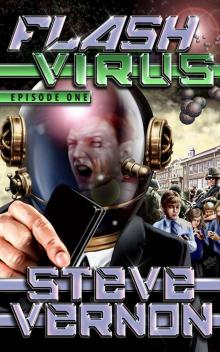 Flash Virus: Episode One
Flash Virus: Episode One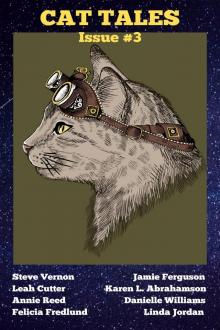 Cat Tales Issue #3
Cat Tales Issue #3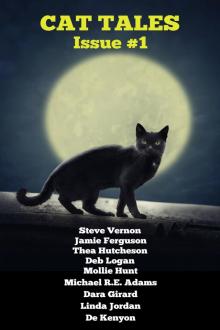 Cat Tales Issue #1
Cat Tales Issue #1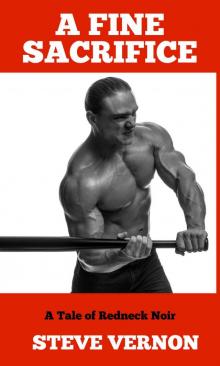 A Fine Sacrifice
A Fine Sacrifice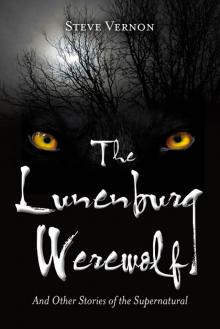 The Lunenburg Werewolf
The Lunenburg Werewolf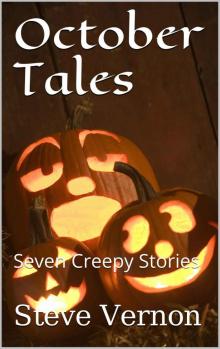 October Tales: Seven Creepy Stories (Stories to SERIOUSLY Creep You Out Book 1)
October Tales: Seven Creepy Stories (Stories to SERIOUSLY Creep You Out Book 1)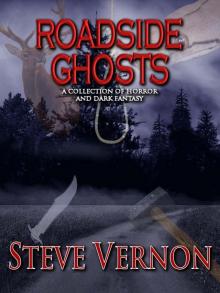 Roadside Ghosts: A Collection of Horror and Dark Fantasy (Stories to SERIOUSLY Creep You Out Book 3)
Roadside Ghosts: A Collection of Horror and Dark Fantasy (Stories to SERIOUSLY Creep You Out Book 3)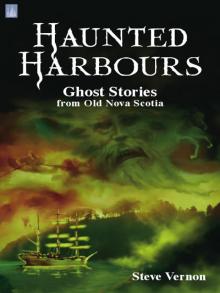 Haunted Harbours
Haunted Harbours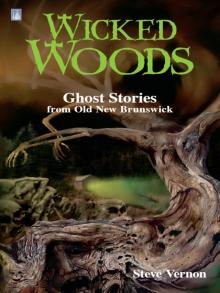 Wicked Woods
Wicked Woods Two Fisted Nasty: A Novella and Three Short Stories (Stories to SERIOUSLY Creep You Out Book 2)
Two Fisted Nasty: A Novella and Three Short Stories (Stories to SERIOUSLY Creep You Out Book 2)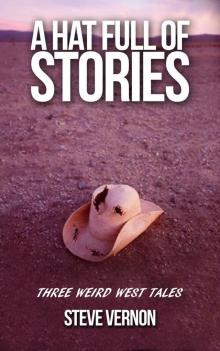 A Hat Full of Stories: Three Weird West Tales (Stories to SERIOUSLY Creep You Out Book 9)
A Hat Full of Stories: Three Weird West Tales (Stories to SERIOUSLY Creep You Out Book 9)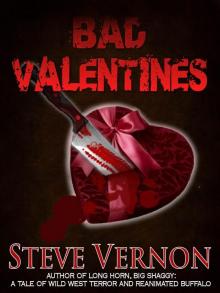 Bad Valentines: three twisted love stories (Stories To SERIOUSLY Creep You Out Book 7)
Bad Valentines: three twisted love stories (Stories To SERIOUSLY Creep You Out Book 7)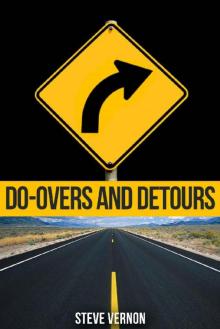 Do-Overs and Detours - Eighteen Eerie Tales (Stories to SERIOUSLY Creep You Out Book 4)
Do-Overs and Detours - Eighteen Eerie Tales (Stories to SERIOUSLY Creep You Out Book 4)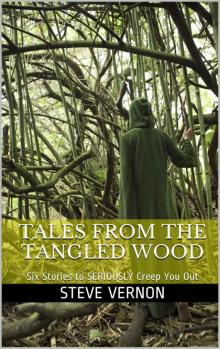 Tales From The Tangled Wood: Six Stories to SERIOUSLY Creep You Out
Tales From The Tangled Wood: Six Stories to SERIOUSLY Creep You Out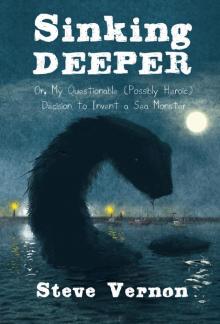 Sinking Deeper
Sinking Deeper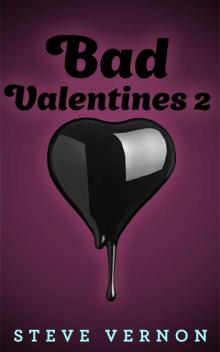 Bad Valentines 2: Six Twisted Love Stories (Stories to SERIOUSLY Creep You Out Book 5)
Bad Valentines 2: Six Twisted Love Stories (Stories to SERIOUSLY Creep You Out Book 5)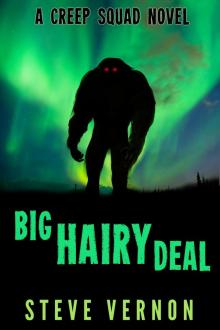 Big Hairy Deal
Big Hairy Deal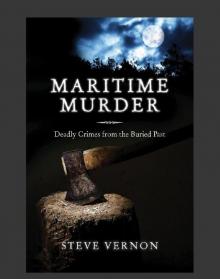 Maritime Murder
Maritime Murder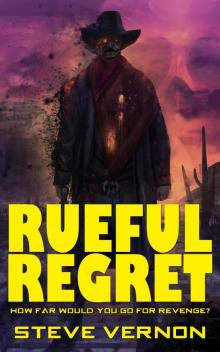 Rueful Regret
Rueful Regret